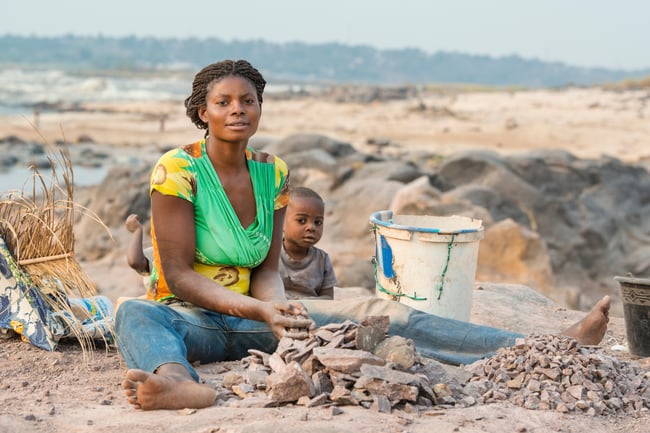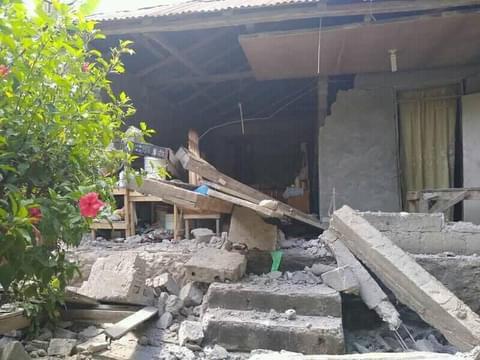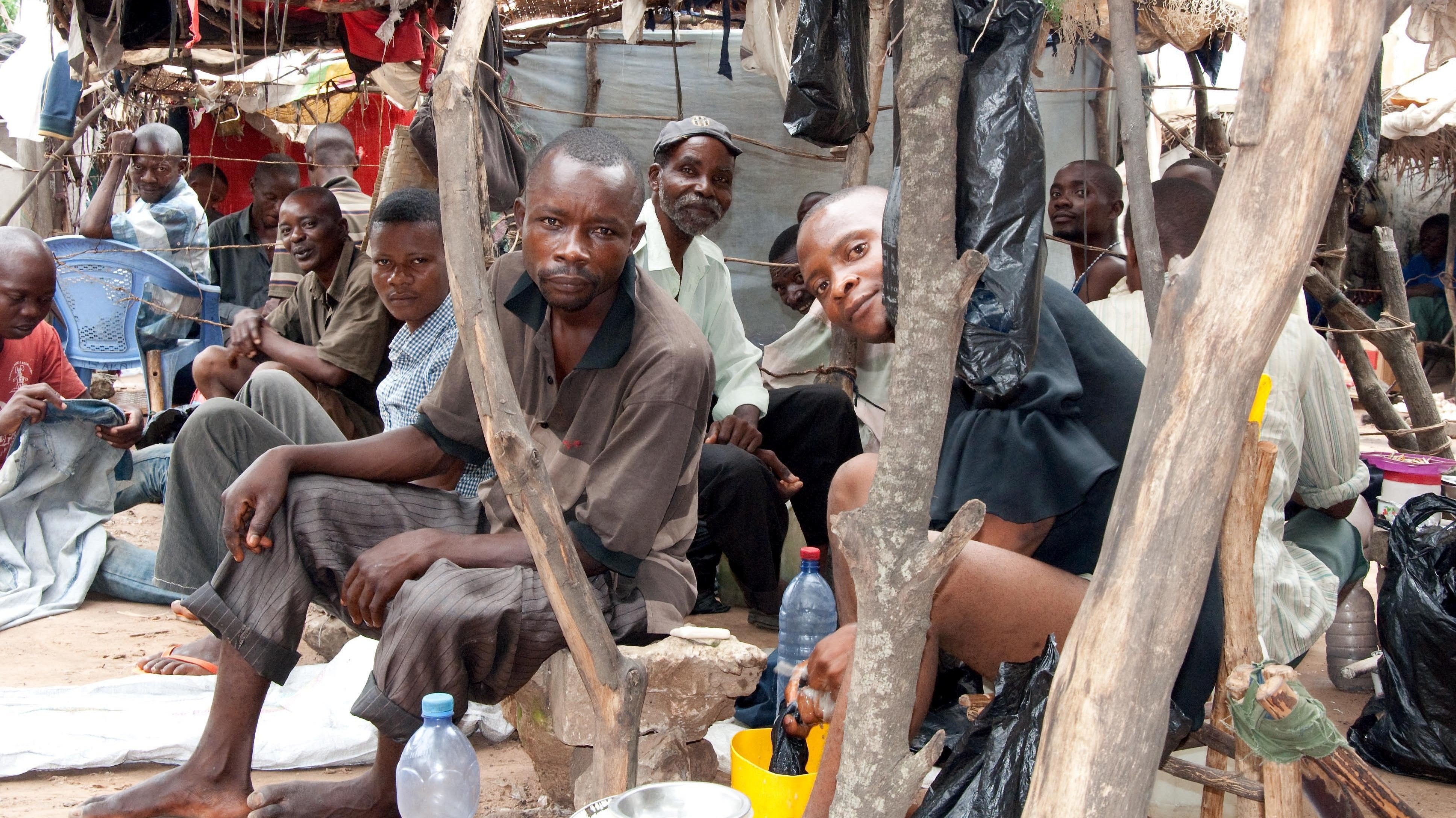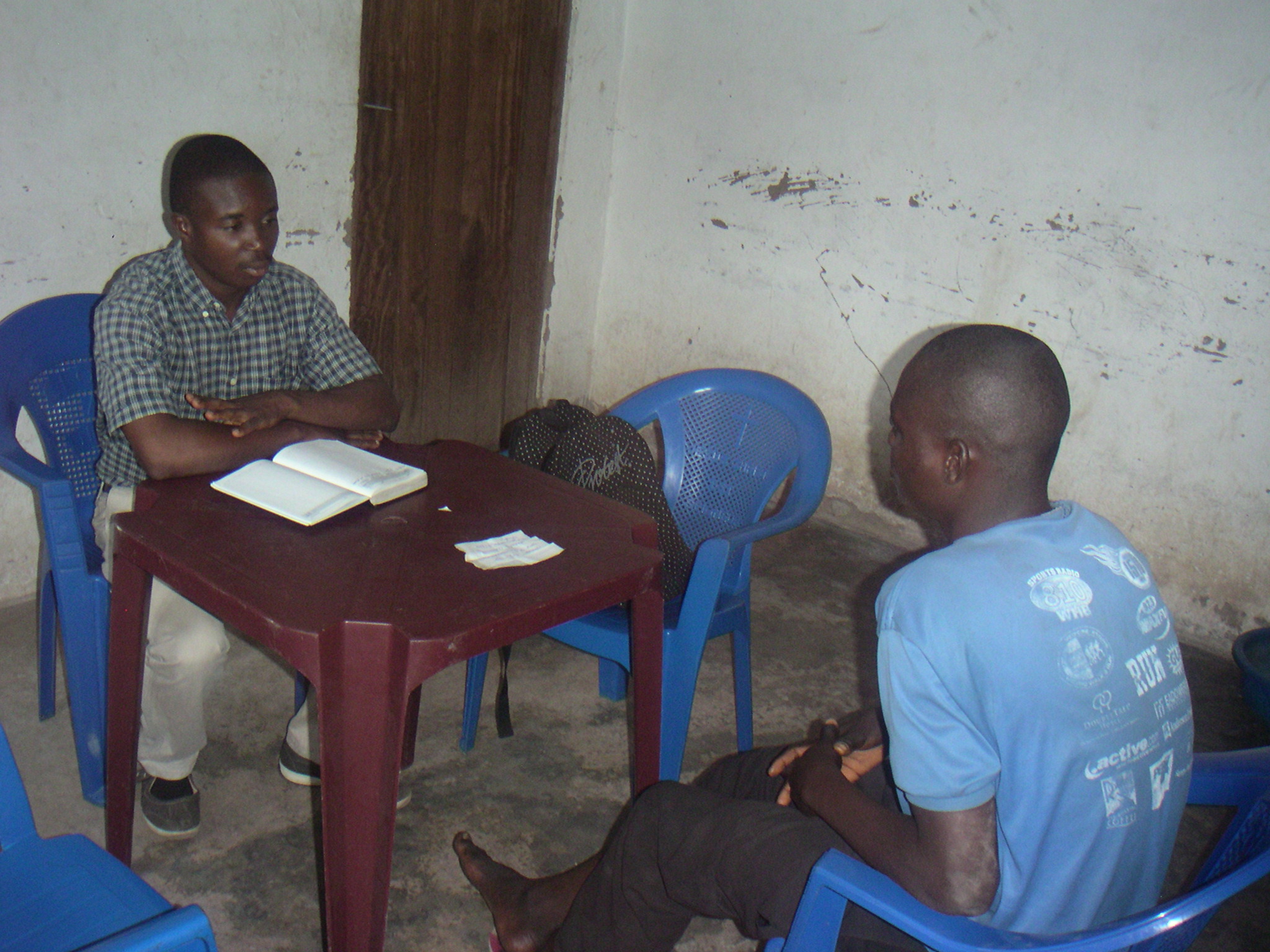
Dear friend, what good is a tractor without gas?
This question offers a great analogy for what the Democratic Republic of Congo (DRC) is experiencing right now. On one hand, the World Bank sees a lot of potential in this young republic:
“With 80 million hectares of arable land and over 1,100 minerals and precious metals identified, the DRC has the potential to become one of the richest countries on the African continent and a driver of African growth.”
Yet, what good is this resourceful land if it’s been plundered, squandered, and torn apart by war and famine?
Without access, money, and education to properly utilize these natural resources, the Congo remains stuck in a cycle of poverty. The country flails helplessly; it’s ranked 176th out of the 187 poorest countries in the world. In 2014, its per capita income (using the Atlas method) was only $380 – one of the lowest in the world.
The country flails helplessly; it’s ranked 176th out of the 187 poorest countries in the world. In 2014, its per capita income (using the Atlas method) was only $380 – one of the lowest in the world.
Today, over half the population lives on less than $1 per day, far below the poverty line. Three million kids under age five are acutely malnourished and over half of infant deaths are from malnutrition.
Corruption, War, and Witch Children
The history of the Congo has been a repetitive tale of corruption and violence, especially since 1996, when the six-year Congolese Civil War erupted and essentially destroyed the country. During that tumultuous time, 5.4 million people were killed and the land, infrastructure, and hospitals were left in ruins.
As recently as 2013 and 2014, when 1.8 million refugees were finally able to return to their homes, they found their possessions, houses, and schools looted and destroyed. This is horrible news for those who have yet to return home. The World Bank reports:
“The United Nations estimates that there are some 2.3 million displaced persons and refugees in the country and 323,000 DRC nationals living in refugee camps outside the country. A humanitarian emergency persists in the more unstable parts of the DRC and sexual violence rates remain high.”
Another heartbreaking reality is the approximately 4 million orphans struggling to survive alone on the streets as beggars. Unfortunately, this is only getting worse. In recent years, there has been a widespread fear of youngsters accused of being “witch children.” “Exorcisms” for these children are expensive and cruel, so their families are often forced to abandon the “witch child” to the streets. Inevitably, they join the street gangs or beg for a living.
Medical Mess
One last dilemma is this: the medical staff in the Congo haven’t been paid in years and many have left for better jobs elsewhere. It is hard to pay anyone in a country with no safe mail delivery. Even armored trucks or airplanes get robbed before delivering money to their destinations. According to an article in the Voice of America:
“In the past year-and-a-half Caritas in Goma lost $130,000 when one of its vehicles carrying teacher pay was ambushed, and another of these vehicles was chased by bandits who may also have stolen teacher pay.”
The remaining medical help in the DRC is only 1 doctor and 5 nurses/midwives for every 10,000 people. Hospitals and health centers are understaffed and poorly equipped. Diseases preventable such as polio or measles occur frequently and take thousands of lives even though they are preventable by immunizations.
Even today, fewer than half of the people in the country have access to clean water. Unfortunately, water borne illnesses are all too common but have little hope of medical help. Cholera in particular claims many lives each year.
HIV/AIDS is common, but malaria is the biggest threat to people in the DRC. Two out of every five deaths among children are caused by malaria.
Help, Hope, and Healing
Luckily, where governmental systems fail, the Catholic Church is there. The Catholic Church provides the Congolese people with the best schools, medical help and services for the poor. The Church is also a powerful moral force, criticizing the government on its social justice violations and corruption. In the last presidential election, it organized an extensive network of independent observers to witness and draw attention to the unfair practices used.
The influence of the Catholic Church also comes from its huge popularity in the DRC. A New York Times article from 2013 cites that the Democratic Republic of Congo has the continent’s largest Catholic population – which has more than tripled in the past 35 years. In fact, between 2005 and 2010, the Catholic population in all of Africa has grown more than 21 percent. The number of priests have increased by 16 percent and the seminaries are full of candidates. Masses are full and the people are devout with a beautiful, lively faith.
Between 2005 and 2010, the Catholic population in all of Africa has grown more than 21 percent.
Growing New Lives
Missionhurst is in a unique position. The people are receptive to us, and to learning, change and progress but we need money to make it happen. For example, a few years ago, our benefactors saved the communities of Tsilomba and Munkamba from hunger and starvation.
Missionhurst is in a unique position. The people are receptive to us, and to learning, change and progress but we need money to make it happen.
Their support enabled missionary Fr. Joseph Bataona to start a training program promoting the importance of farming. Three hundred unemployed young people who completed the program applied their skills in their local villages to grow vegetables, roots, and crops for their own consumption, and to sell in the markets. The success of the project provided the people with more than nourishing food. It also encouraged them to believe in their own capacity to help themselves.
The success of the farming project in these communities reached other neighboring villages and even the governor. Showing his support for their efforts, the governor awarded the young farmers two tractors in order to increase cultivated area and produce more food. Though ecstatic about the award, their enthusiasm faded when they realized that they could not afford the cost of fuel and the drivers needed to operate the tractors.
We need your support NOW
The Missionhurst missionaries still work in the midst of many dangerous challenges in Congo. The water, sanitary conditions, diseases and the climate are some of their most prevalent worries, but their stance against social injustices of the country leaves them in danger of assassination, retaliation or exile.
Without any police to stop them, criminal gangs are free to do what they like. Bishops, priests and nuns have been killed or forced to flee for their lives. Once they leave the country, priests and bishops may not be able to get back in.
One such incident happened during the middle of the Civil war in 1999 when Bishop Djomo left the DRC to collect donations for the poor in the U.S.. When he returned with 12 tons of medical supplies for his dioceses of about 1 million people, he was blocked re-entry. Luckily, the United Nations troops intervened so that he could return to his flock with the supplies they needed.
This year in particular, dear friends, our Democratic Republic of Congo is currently in a precarious position. Another election could mean more violence. Suppressing the election could mean more violence.
The next presidential election is supposed to happen in 2016 but the current president is refusing to let the election happen. The Catholic Church is working hard to pressure the government to make sure that the presidential elections are carried out in a fair and honest manner. This is causing even more backlash.
This poor, war-torn country needs so much more help, hope and healing.
Look how much your devoted prayers and donations have accomplished so far. With more prayers and more financial support, we might be able to succeed in using this election cycle to turn the tide of the Congo’s history and bring this country a new life of peace and prosperity!
Our missionaries rely on your prayers and support to continue loving and serving the people of the Democratic Republic of the Congo.








